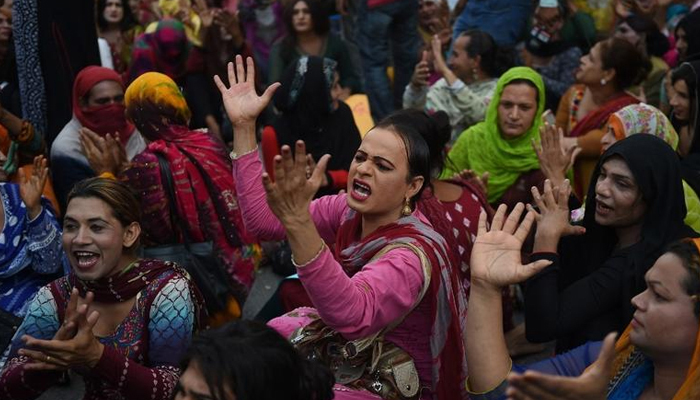Transgender individuals should be allowed to perform Hajj, Umrah: KP resolution
Resolution in KP Assembly also calls for right to inheritance for the transgender community
PESHAWAR: Transgender individuals should be allowed to perform Hajj and Umrah in the Kingdom of Saudi Arabia, a resolution submitted Friday in the Khyber Pakhtunkhwa Assembly demanded.
PPP lawmaker Nighat Yasmin Orakzai submitted the resolution to the KP Assembly's secretariat.
The resolution demanded that the Pakistani government request Saudi Arabia to allow transgender people to perform the Islamic pilgrimages. It also calls for the right to inheritance for the transgender community as they, too, "are citizens of Pakistan".
"The transgender community is also part of the [Pakistani] society; therefore, their identity cards should be included in the inheritance law," the resolution stated.
Trans rights in Khyber Pakhtunkhwa
Pakistan had in 2018 passed a landmark transgender rights bill for the community's protection, prohibiting gender-based discrimination, allowing them fundamental rights, and letting them choose their gender on official documents.
Earlier this year, the Khyber Pakhtunkhwa Social Welfare Department had proposed a new policy for the transgender community, noting that advice had been sought from relevant stakeholders and approval from the provincial cabinet awaited.
The new policy formulated for transgender rights focuses on various aspects, including education opportunities, medical treatment, and job quotas. The document proposed a 2% quota in government jobs for the transgender community and recommended setting up separate schools and vocational centres at divisional headquarters.
Medical treatment, gender reassignment facilities
Quotas should also be allocated for transgender individuals in government housing schemes, it had read, noting that members of the community would have the right to vote, run in elections, and hold public offices.
That document also made a recommendation for transgender individuals to receive unemployment and health insurance, as well as hardship grants, and a plan was to be prepared to provide a sum of Rs2,000-3,000 per month to unemployed transgender individuals over the age of 50.
The transgender persons would also be provided medical treatment, including protection against AIDS, as well as new gender reassignment facilities, the proposed policy had demanded.
-
Security forces gun down 30 terrorists in multiple IBOs in KP: ISPR
-
MQM-P calls for new province in Sindh
-
US report validates Pakistan military edge over India: PM
-
Banned TTP poses serious threat to Pakistan security: UNSC panel
-
CM Afridi clarifies remarks on by-poll after ECP requests army deployment
-
Dubai sees 3.2m Pakistani passengers in 2025 as airport sets new milestone
-
Security forces kill 23 Indian proxy terrorists in KP's Kurram
-
Pakistan to construct island to boost oil exploration: report












